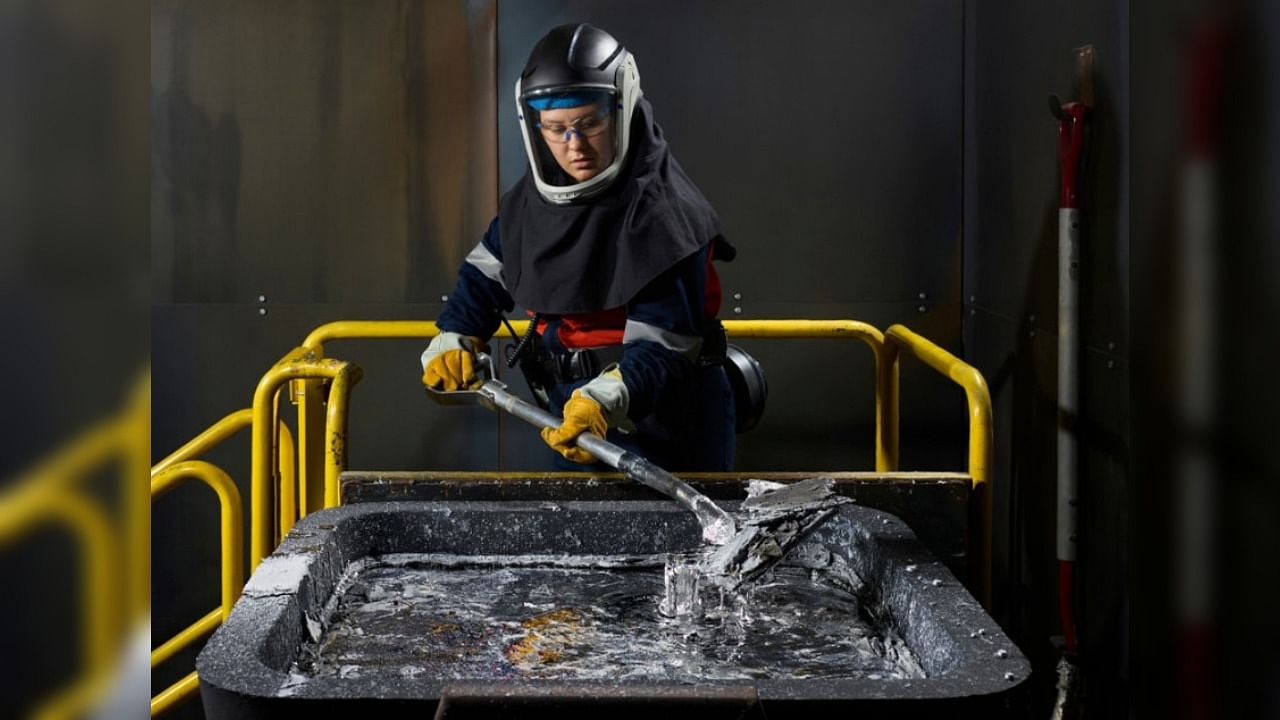
Since 2016, Apple has committed more than $4.7 billion in green bonds for developing innovative eco-friendly technologies in terms of manufacturing and operating its factories and corporate offices around the world.
Now, Apple has revealed that the company has made breakthrough ELYSIS carbon-free smelting technology that will greatly reduce carbon emission and also lower the negative impact on the environment for sourcing raw materials for its products.
Apple has said it will purchase carbon-free aluminum to manufacture the recently released iPhone SE (3rd Gen). It is touted to be world's first commercial-purity low-carbon aluminum produced at an industrial scale outside of a laboratory without creating any direct carbon emissions during the smelting process.
“This is the first time aluminium has been produced at this commercial purity, without any greenhouse gas emission and at industrial scale. The sale to Apple confirms the market’s interest in aluminium produced using our breakthrough ELYSIS carbon-free smelting technology. Today’s announcement proves that ELYSIS, a joint venture between Alcoa and Rio Tinto, was able to turn an idea into reality. We are excited to be working alongside Apple on this advancement, which has the potential to make lasting changes in how aluminium is produced.” said Vincent Christ, ELYSIS’s CEO.
While the first two green bonds announced in 2016 and 2017 are now fully allocated, the 2019 green bond is being used to support 50 projects, including the low-carbon aluminium breakthrough. These 50 projects will mitigate or offset 2,883,000 metric tons of CO2e, install nearly 700 megawatts of renewable energy capacity around the world, and promote new recycling research and development, Apple noted.
It should be noted that most of the iPhones and including the latest iPad Air (5th Gen), iPhone SE, iPhone 13 series and even the iPhone 12 series, are made with recycled materials. The gold, tin used for internal components and the rare earth materials used for MagSafe magnets in the back of the iPhone 13 are all 100 per cent recycled materials.
Also, every model in the iPad lineup, including the new iPad Air, along with the latest MacBook Pro, MacBook Air, Mac mini, and Apple Watch, are made with a 100 percent recycled aluminium enclosure.
Furthermore, Apple has completely removed the plastic for the packaging of the device and thereby reducing 600 metric tons of plastic entering the environment.
Apple has set an ambitious goal of becoming 100 per cent carbon-neutral across its entire business, manufacturing supply chain, and products' life cycle by the end of this decade (2030). That's 20 years ahead of the target set by the Intergovernmental Panel for Climate Change (IPCC).
“Apple is committed to leaving the planet better than we found it, and our Green Bonds are a key tool to drive our environmental efforts forward. Our investments are advancing the breakthrough technologies needed to reduce the carbon footprint of the materials we use, even as we move to use only recyclable and renewable materials across our products to conserve the earth’s finite resources,” said Lisa Jackson, Apple’s vice president of Environment, Policy, and Social Initiatives.
So far, 175 plus manufacturing partners across 24 countries have now committed to using 100 percent renewable energy for devices' production, to ensure every Apple product has a net-zero climate impact.
Get the latest news on new launches, gadget reviews, apps, cybersecurity, and more on personal technology only on DH Tech.
